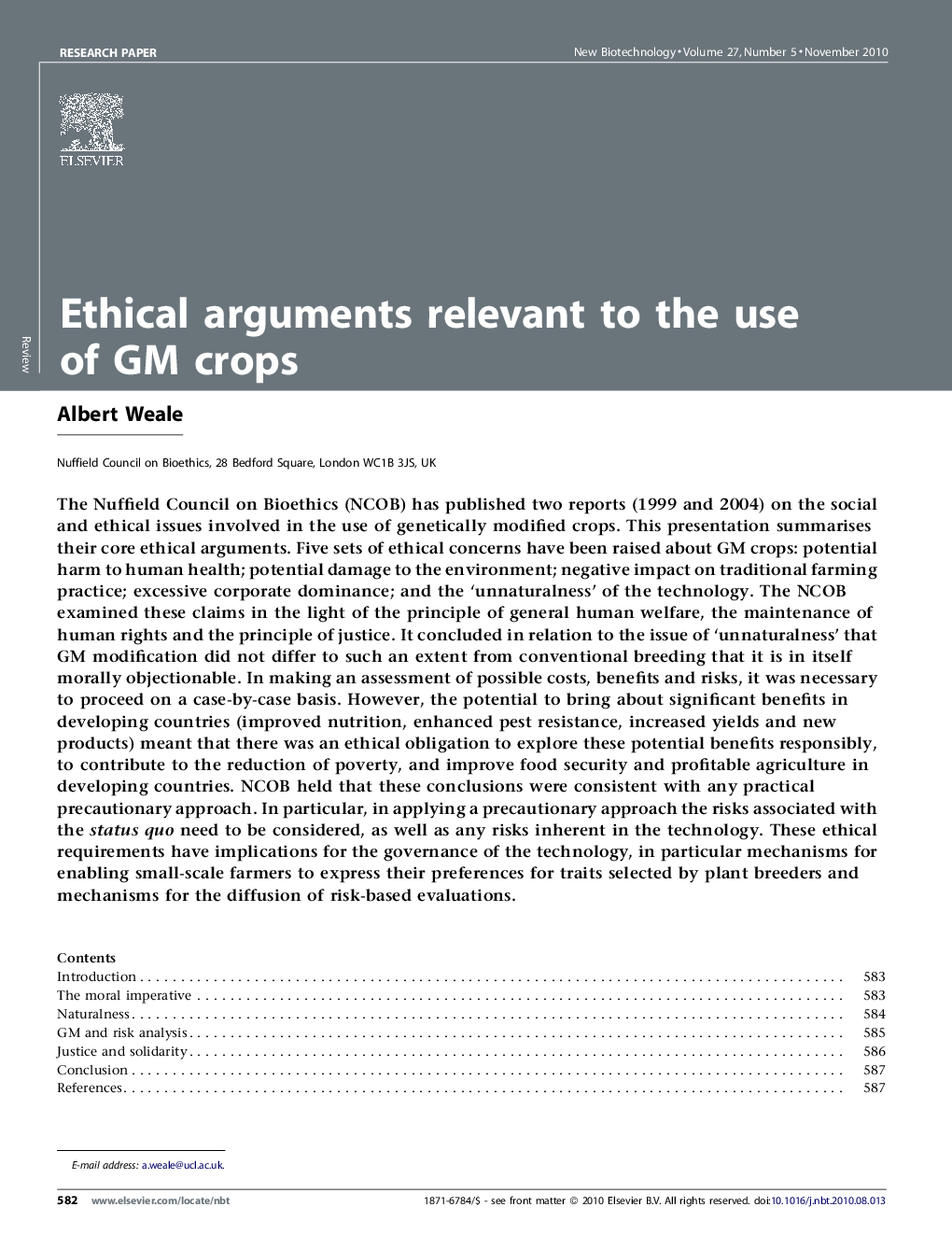| کد مقاله | کد نشریه | سال انتشار | مقاله انگلیسی | نسخه تمام متن |
|---|---|---|---|---|
| 34052 | 45000 | 2010 | 6 صفحه PDF | دانلود رایگان |

The Nuffield Council on Bioethics (NCOB) has published two reports (1999 and 2004) on the social and ethical issues involved in the use of genetically modified crops. This presentation summarises their core ethical arguments. Five sets of ethical concerns have been raised about GM crops: potential harm to human health; potential damage to the environment; negative impact on traditional farming practice; excessive corporate dominance; and the ‘unnaturalness’ of the technology. The NCOB examined these claims in the light of the principle of general human welfare, the maintenance of human rights and the principle of justice. It concluded in relation to the issue of ‘unnaturalness’ that GM modification did not differ to such an extent from conventional breeding that it is in itself morally objectionable. In making an assessment of possible costs, benefits and risks, it was necessary to proceed on a case-by-case basis. However, the potential to bring about significant benefits in developing countries (improved nutrition, enhanced pest resistance, increased yields and new products) meant that there was an ethical obligation to explore these potential benefits responsibly, to contribute to the reduction of poverty, and improve food security and profitable agriculture in developing countries. NCOB held that these conclusions were consistent with any practical precautionary approach. In particular, in applying a precautionary approach the risks associated with the status quo need to be considered, as well as any risks inherent in the technology. These ethical requirements have implications for the governance of the technology, in particular mechanisms for enabling small-scale farmers to express their preferences for traits selected by plant breeders and mechanisms for the diffusion of risk-based evaluations.
Journal: New Biotechnology - Volume 27, Issue 5, 30 November 2010, Pages 582–587